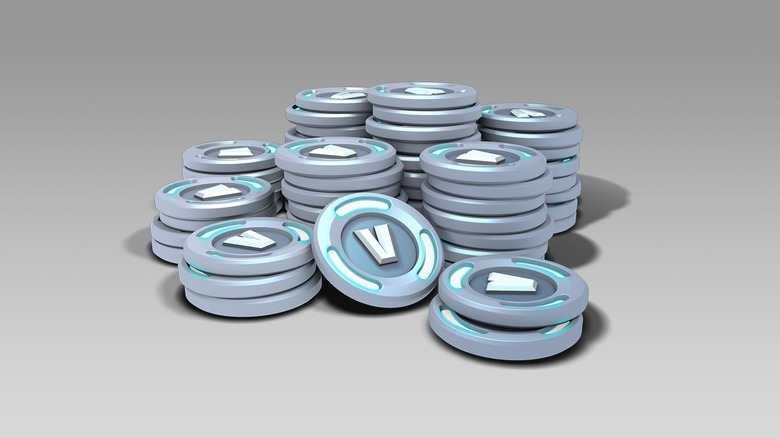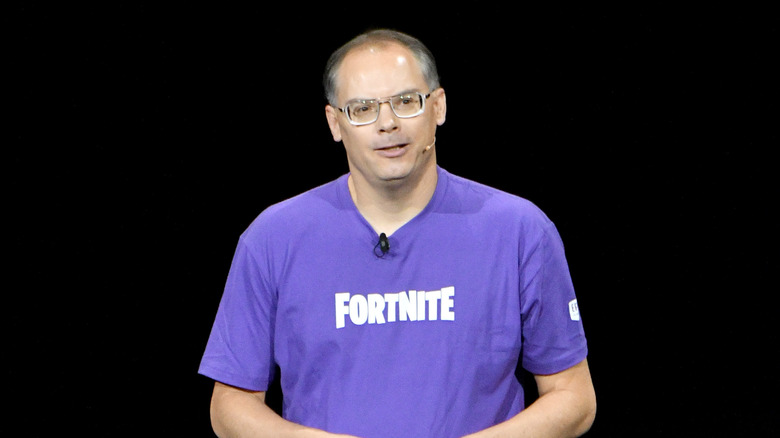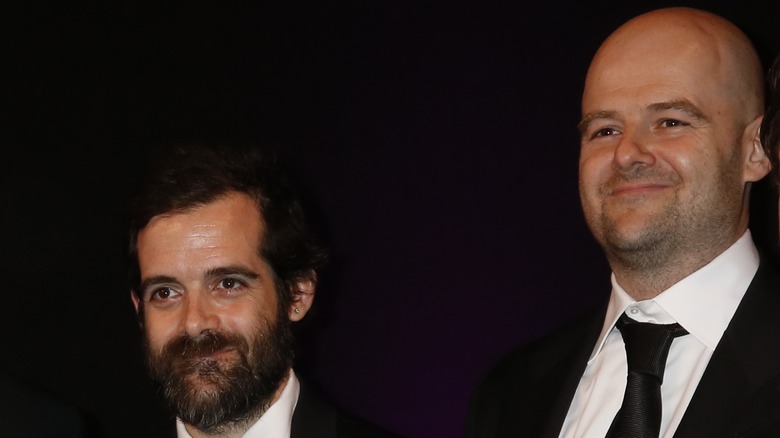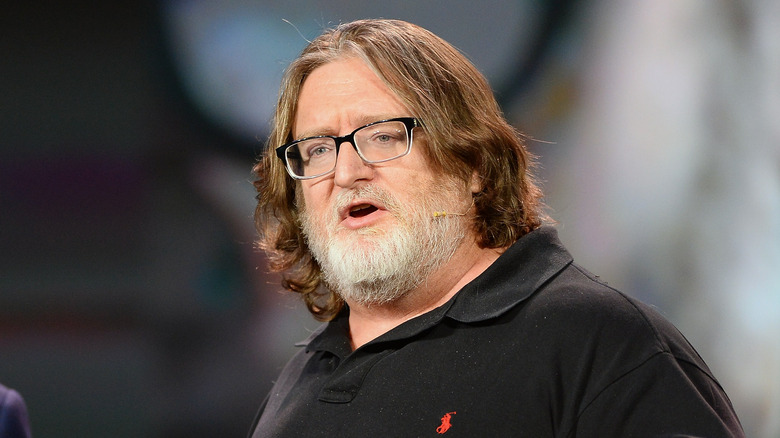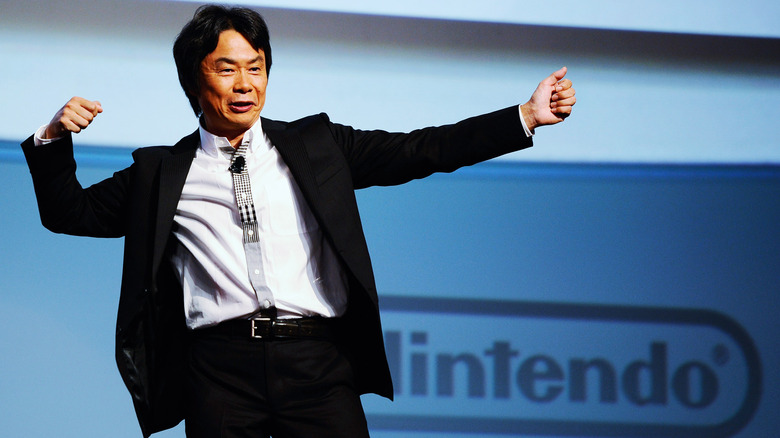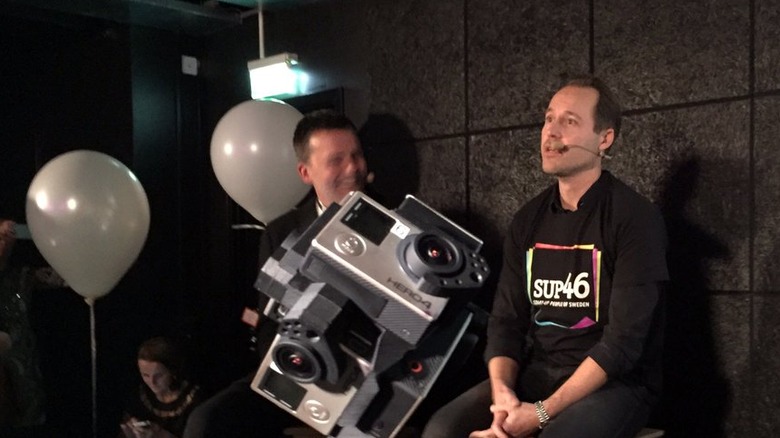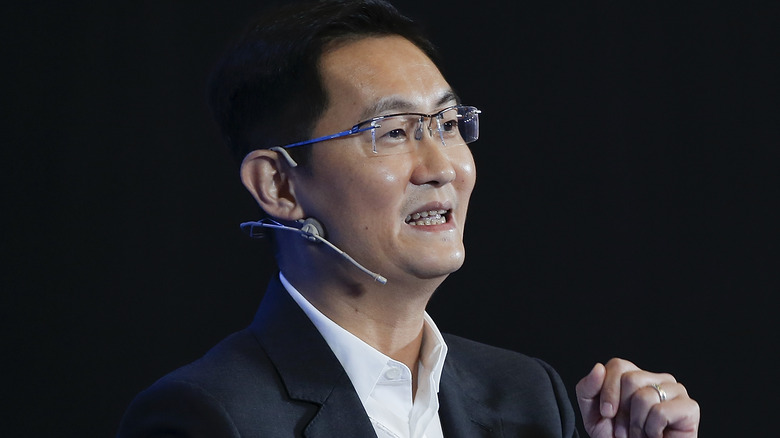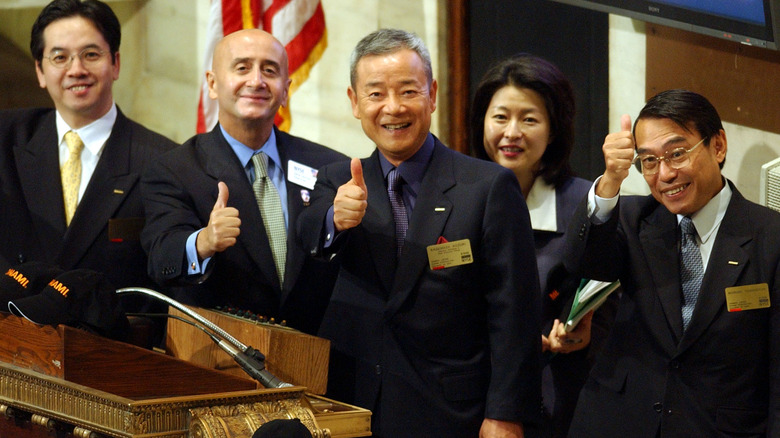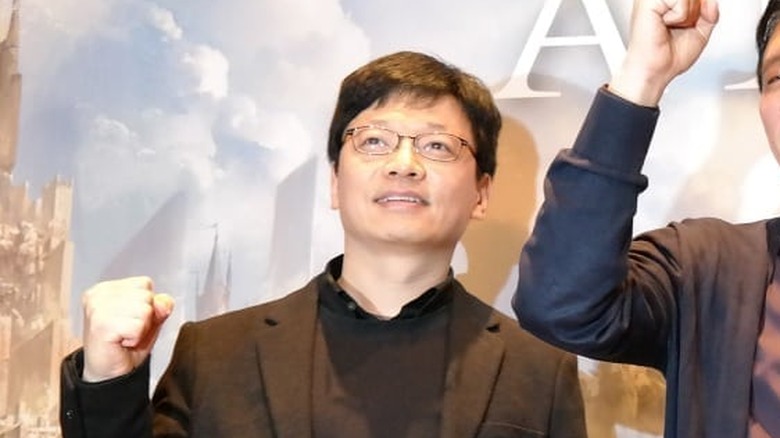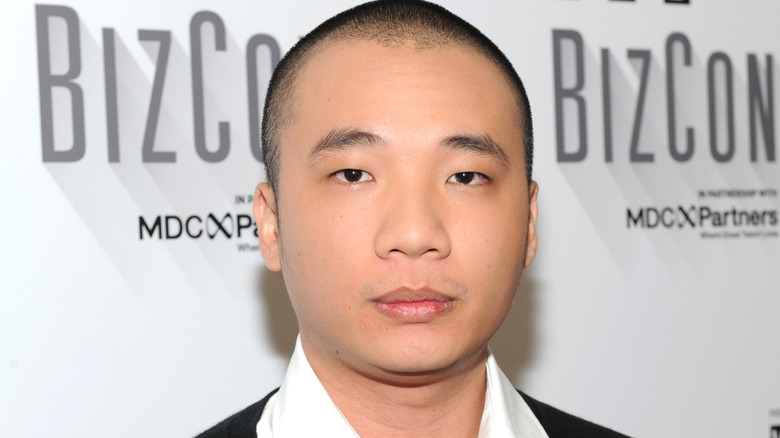Video Games That Made Their Creators Stupid Rich
Don't let your parents tell you that there is no money in video games. There's actually a ridiculous amount of money in video games. The global games market value is on the rise: video games are a $134.9 billion industry. Tell that to your folks at your next family get-together.
In a world where streamers like Ninja can get rich by playing games for an audience, imagine just how much the creators of those games are making. Successful games have made their creators billionaires many times over, especially today when AAA titles break sales records and multiplayer games have more people online than ever before. We're not talking about indie hits that put their creators on the map. We're talking ultra-successful games that now sit on millions of consoles, making their creators stupid rich. These developers and designers could get a couple Teslas, a Ferrari, and a Porsche without making much of a dent in their bank accounts.
Tim Sweeney, Fortnite
How long does it take to become worth a billion dollars? What about seven billion? The safe guess would be several years of hard, hard work and financially savvy decisions — or maybe winning the lottery. The correct guess, in the case of Tim Sweeney, would be a year and a half, thanks to creating the world's most popular game.
Tim Sweeney is the founder of Epic Games, and now one of the top 200 richest people in the world. For reference, this man is officially more financially successful than George Lucas. That's just the mind-boggling power and pull behind Fortnite. To be clear, Sweeney has always enjoyed a fair amount of success at Epic Games. Epic gets a cut of every game crafted on its Unreal Engine, and many a successful game has been developed in Unreal, Fortnite included.
Let's be real, though — if one thing has made this man so rich, it's Fortnite. Although the game is free to play, kids spending V-Bucks on emotes and exclusive skins keep the cash rolling in. Epic Games made $3 billion in profit in 2018 due to the game's universal appeal and smashing success. This profitability in mind, Epic Games (and by extension Sweeney) are looking to expand. The controversial announcement of the Epic Games Store and its plan to take less than half the revenue Valve's Steam does from creators, is a reflection of that fact that Epic has money to spare and will likely only be making more in the future.
Notch, Minecraft
Like Fortnite, Minecraft became a household name fast. To this day, long after its 2011 release, there are still around 91 million monthly active players punching trees and avoiding creepers. The game, simple in aesthetic and aim, has sold over 154 million copies, making Minecraft the second best selling game in history. The year after Minecraft's release, developer Mojang had already amassed $240 million. Minecraft creator Markus "Notch" Persson made a whopping $101 million in 2012. For him, it was surreal ... or, in his own words via one Reddit post, "It's weird as f***."
Notch became revered as the god of Minecraft. His name (and impressive paycheck) became well known to the world at large when Microsoft acquired Mojang to the tune of $2.5 billion. Notch is more than set for life, and as it turns out, he doesn't know what to do with all his success. With the kind of money he had made from Minecraft, he was able to get anything and everything he wanted, which included the acquisition of a $70 million mega mansion. He outbid Jay-Z and Beyoncé to get the enviable, if not over the top, Beverly Hills home.
But in Notch's case, money does not equal happiness. In a Twitter rant, Notch said that the billions made him miserable: former employees hate him, love interests are intimidated by his wealth, and his friends with regular lives have trouble relating to the most unrelatable problem ever: having too much money.
The Houser Brothers, Rockstar Games
Sam and Dan Houser are something of a dynamic duo when it comes to creating video games. They are the rock stars behind Rockstar Games and have together formulated two of the most successful game franchises ever, Grand Theft Auto and Red Dead Redemption. Dan is the writing genius who crafted the crime-ridden stories behind GTA and Red Dead, while Sam is in charge of aesthetics and player immersion in the rough-hewn worlds that the pair dream up.
Grand Theft Auto V brought the brothers a stupid amount of success back in 2013. The game has officially made more money than any other form of media — more than Harry Potter, more than Star Wars, and more than your favorite Queen jam. If that's not enough to prove that video games are profitable, we don't know what is. It's safe to assume that the brothers, as writers and producers, got hefty royalties. We know from the record sales of Red Dead Redemption II that they will receive the majority of the $538 million that Rockstar stands to make from sales of the sequel alone.
Sam Houser is fairly reclusive, but we know that his brother is something of a literature fan — he bought novelist Truman Capote's $10 million New York penthouse.
Gabe Newell, Valve
It might come as no surprise that Gabe Newell is one of the richest men alive. This made people blink a bit back in 2012 when video games weren't exactly the powerhouse multimedia industry they are today. However, gaming was well on its way to record success, and good guy Gabe was going to help. Valve's Half-Life (which turned 20 years old in 2018 — yikes) and Portal series put the developer on the map with millions in sales, but the real revolution in gaming was just around the corner.
Even with continuing hits like Dota and Counter Strike, the revenue Valve made from Steam quickly overtook that which they made from the sales of their own games (just one reason we haven't seen Half-Life 3). Back in 2012, Newell was estimated to be worth $1.5 billion, approximately half the worth of Valve. Today, the man who owns half of Valve is Forbes' 97th richest man with a valuation of $5.5 billion. It's a nice boost from back in the day.
Shigeru Miyamoto, Mario
Some of the most memorable, beloved, and successful games ever have come from the genius of a single man. Shigeru Miyamoto is Nintendo's crown jewel: he designed Mario, The Legend of Zelda, Donkey Kong, Star Fox, and Pikmin. Half of the Super Smash Bros. lineup are his very own brainchildren.
Naturally, you don't want that legendary noggin getting busted open. This is why Nintendo reportedly no longer allows Miyamoto to ride his bike to work. His safety is just too important to the company and its future success. Miyamoto has been hard at work for Nintendo since the '70s, all the way up through his recent role as creative director for Super Mario Odyssey.
In 1999, fans were concerned that Miyamoto wasn't getting properly compensated for his considerable impact on the world of gaming. Today, though, we know that he is more than well off as the second highest paid employee at Nintendo with a multi-million dollar salary.
Sebastian Knutsson, Candy Crush
A trillion is an unfathomable number, and while it's not how much money Candy Crush developer King has made, it is an approximation of how many times people have idly played a round or two of the insanely simple, utterly addicting mobile game. As small and easy as Candy Crush is, the game is big in all other ways: it currently has around 4,000 levels and has amassed over 2 billion downloads.
Candy Crush is free, but that doesn't stop players from shelling out on in-app purchases, which can really add up. The heads of King, including chief creative Sebastian Knutsson, are millionaires several times over. The value of matching up colorful candy can't be underestimated. Knutsson has a valuation of approximately $396 million due to his shares in the company. He's the one constantly adding new levels, even though he initially thought that Candy Crush would be just a passing fad.
Now, it allows him to live a life of luxury. He bought a $3 million house in his hometown of Stockholm, before it nearly caved in due to flooding from the above ground pool ... not that he was strapped for cash for repairs.
Ma Huateng, Tencent Games
The richest man in China probably has a significant amount of ownership over your favorite game. Ma Huateng, the CEO of Tencent, made a name for himself with the "app for everything" that a seventh of the world's population uses on the daily: WeChat. Social media like Facebook is banned in China, so WeChat does it all — social media, messaging, and group chats. Needless to say, the app is hugely successful and has made it possible for Tencent to invest elsewhere. Everywhere, really.
Tencent Games has a majority stake in Miniclip, Riot Games, and Supercell. Miniclip is the old favorite behind Plague, Inc. and Bloons Tower Defense. They also own Riot outright, meaning that League of Legends is all theirs, while their 84% stake in Supercell means they mostly own Clash of Clans. This isn't to mention their considerable investments into both Fortnite and Playerunknown's Battlegrounds. Tencent, and by extension Ma Huateng, has their fingers in many tasty, lucrative pies. He's worth about $37.8 billion to reflect these wise investments into the world of gaming.
Kagemasa Kozuki, Konami
Konami enjoys the success of some of the best known and most beloved games in existence, but they started out with fairly humble beginnings. Founder Kagemasa Kozuki, now worth $1.2 billion, was there from the start. In the '70s, he transformed his jukebox repair business into the Konami we know now — or at least the one that started with making coin-operated arcade games like Frogger. They found success both in traditional arcade games before moving into the home. The NES took Konami to a whole new level.
Konami is a family affair. The "ko" in the company's name comes from the founder's last name, and is carried on by his son Takuya Kozuki, who now serves as the president. His father is still the chairman, but it was speculated that this shift in leadership from father to son is what made tensions come to a head with genius game-designer-in-residence at Konami, Hideo Kojima, who left the company after the cancellation of Silent Hills back in 2015.
Despite the bad press Konami got because of the messy break-up with Kojima, the company is still valuable and stands to make more with a shifting focus on mobile, which Konami CEO Hideki Hayakawa says is the future of gaming.
Kwon Hyuk-Bin, CrossFire
You may not have heard of the most popular first person shooter in the world. CrossFire is an online game that looks like a mix of Counter Strike and Final Fantasy: all the tactical action with the addition of women in weird, impractical outfits. The Korean game is second only to World of Warcraft when it comes to gross online revenue, having amassed $6.8 billion over its lifetime.
The game's success is mostly limited to Asia, which is why you might not have heard of it. The creator, Kwon Hyuk-Bin, is one of the only true self-made billionaires on this list. The man who is now one of South Korea's richest men was something of a dreamer. He turned down a solid job at Samsung in order to pursue his dream of making video games ... and it paid off, over and over again. Kwon owns 100% of his company SmileGate, which made $483 million in 2014, half of that impressive number being profit.
Dong Nguyen, Flappy Bird
We fondly remember Flappy Bird's fifteen weird and wonderful minutes of fame. The game was basic, yet intensely frustrating. Somehow it felt near impossible to make this ugly little bird navigate past green Mario-esque pipes. Somehow, it made a stupid amount of money.
Flappy Bird only lived for 28 days, but in that time, it managed to captivate (and frustrate) the world. To the shock of humble creator Dong Nguyen, Flappy Bird became one of the top ten apps on the Apple App Store. That success translated to cold hard cash. Nguyen was making a reported $50,000 a day in ad revenue.
However, Flappy Bird had its detractors. Kotaku called it out for the allegedly stolen Mario pipes, and people speculated that bots were involved with the game's sudden success. All the attention started to get under Nguyen's skin. He didn't want to talk to the press and seemed to take all of the angry tweets very personally. Things came to a head when he said in a tweet that Flappy Bird had ruined his "simple life." Not long after, he announced that he would be taking Flappy Bird down permanently. "I cannot take this anymore," he said simply.

